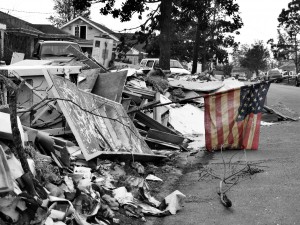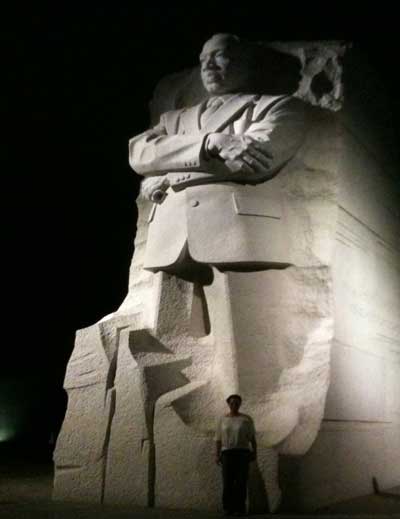
Gimbiya Kettering at the MLK memorial in Washington DC (2012).
We need all of you. And you know what’s beautiful to me is to see all of these ministers of the Gospel. It’s a marvelous picture. Who is it that is supposed to articulate the longings and aspirations of the people more than the preacher? Somehow the preacher must have a kind of fire shut up in his bones. And whenever injustice is around he tell it.
-Rev. Dr. Martin Luther King Jr.
3 April 1968, “I’ve been to the Mountain Top”
Depending on your social circles, you may have recently had many conversations about the passing of Martin Luther King Jr. — or none. The fiftieth anniversary of King’s assignation has been commemorated in magazines and radio programs. The National Council of Churches held a rally in Washington DC and a number of communities held local rallies. At the same time, the day seemed to generate less awareness than the annual MLK holiday which for many families mean a day off from school with a scramble to find childcare or the excitement of a three day weekend. Fifty years is a lifetime – and in that time our nation’s understandings and interpretations of the life of Martin Luther King Jr. has changed. At the time of his death he was disliked and unpopular, with over 70% of White Americans by some polls of the era. While he is now seen as integral to our national story –and there are spaces around the country named in his honor.
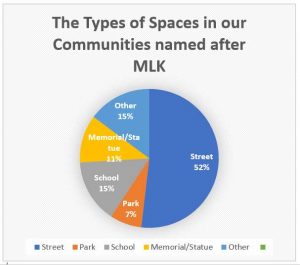
The May “Continuing Together” call sponsored by Intercultural Ministries, was a conversation about the legacy of Martin Luther King Jr. Using National Geographic articles available online from the April 2018 issue that focused on race, we asked two questions that spun into a conversation that considered family histories, imaged hypotheticals, and how our values are shaped by the valules of MLK:
Where is Martin Luther King Jr. in your neighborhood? Participants took a survey that asked them to look at their neighborhoods and communities and also the National Geographic article Martin Luther King Streets World Wide. (See the results of our survey in the charts below.)
How would our national history be different if he had never been assassinated? The National Geographic explored this question in the article, What if Martin Luther King Jr. Were Never Assassinated.
SAVE THE DATE: The next Continuing Together call will be Thursday, June 14, 2018 – 1:00-3:00 EST.
Gimbiya Kettering, Director, Intercultural Ministries
Church of the Brethren
Results for MLK Near You Survey
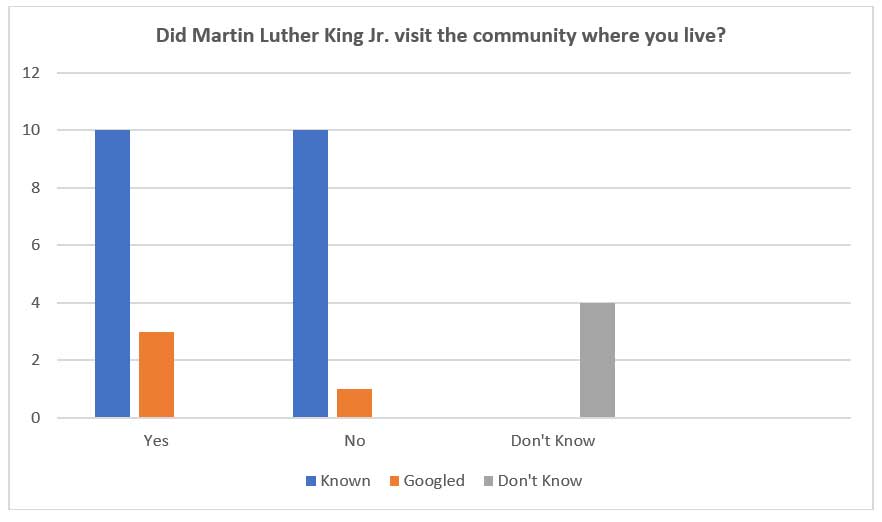
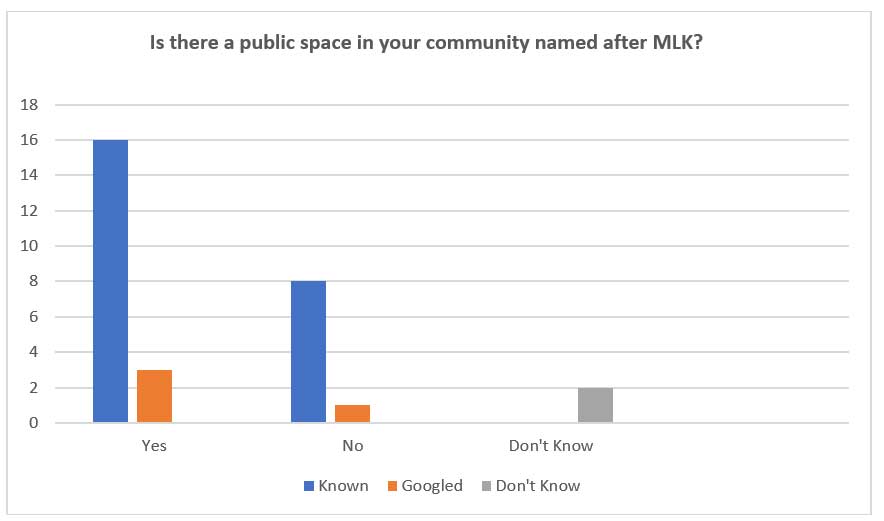
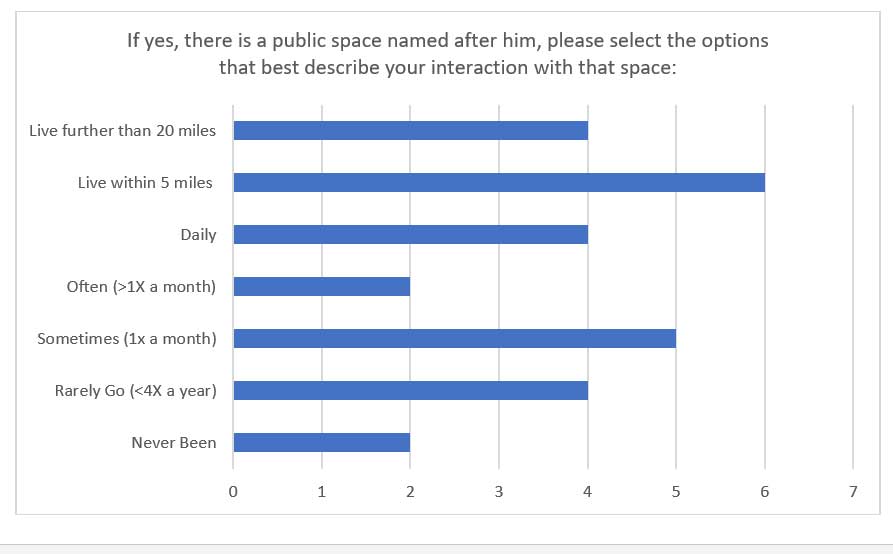
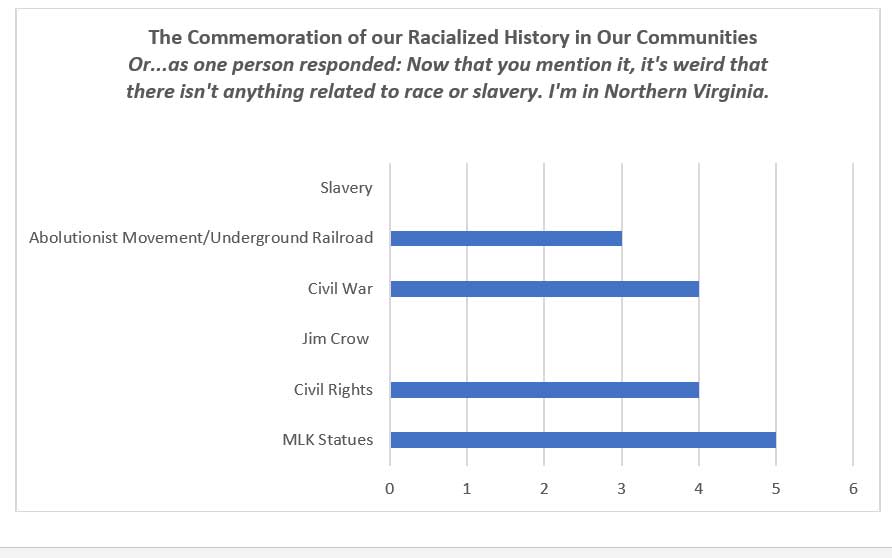
Demographics of survey responders:
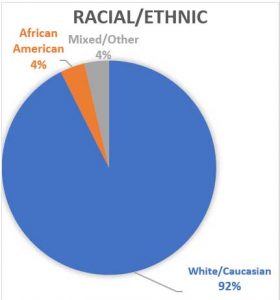
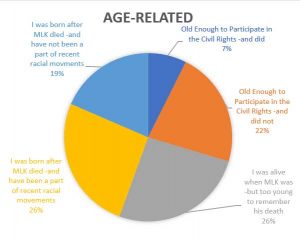
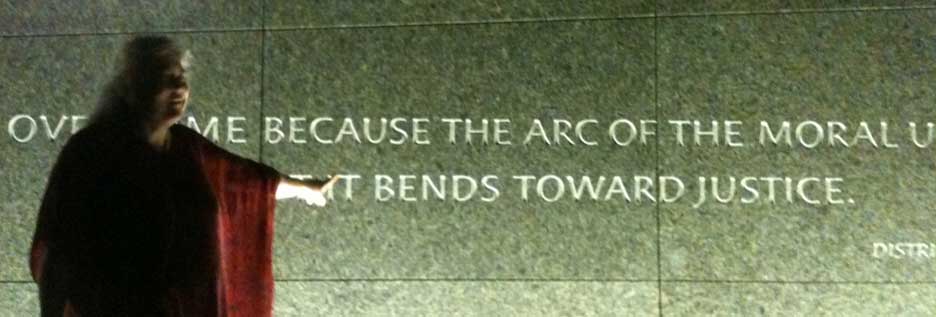
Barbara Daté, member of Intercultural Ministries Advisory Committee and Revelation 7:9 Awardee, at the MLK Memorial in Washington DC (2012). The quotes included in the memorial are an example of how we selectively remember King. King also said:
Time itself is neutral; it can be used either destructively or constructively. More and more I feel that the people of ill will have used time much more effectively than have the people of good will…Human progress never rolls in on wheels of inevitability; it comes through the tireless efforts of men willing to work to be co-workers with God, and without this hard work, time itself becomes an ally of the forces of social stagnation. We must use time creatively, in the knowledge that the time is always ripe to do right. (Why We Can’t Wait)


